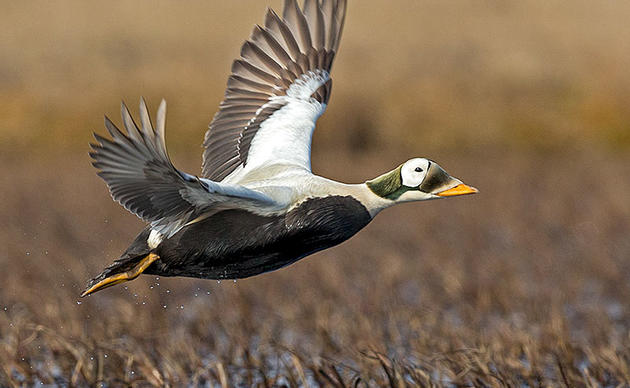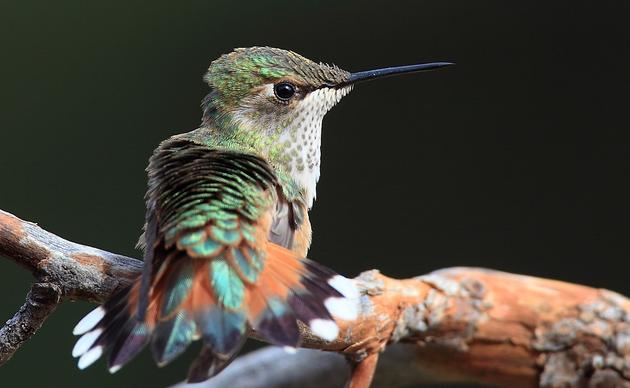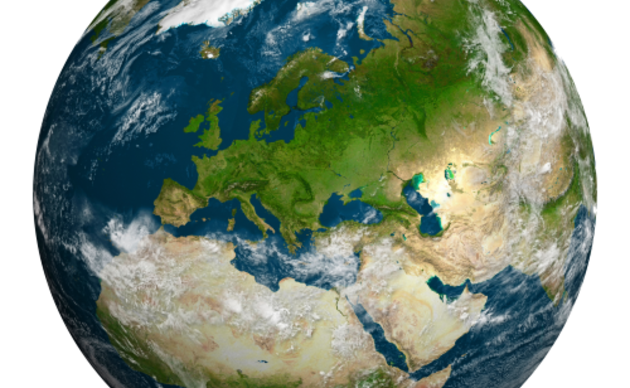Washington, D.C. (March 9, 2022) — On Wednesday, more than 200,000 comments from throughout Alaska and across the country were submitted to the U.S. Interior Department and Bureau of Land Management opposing the Willow oil and gas project. Advocates called on President Biden to protect the Western Arctic and the birds, wildlife and people that depend on the area. In addition, 140 organizations submitted a letter directly to Interior Secretary Deb Haaland opposing the project, noting that the “reassessment of and response to this damaging proposal will be a significant test of this administration’s commitment to bringing the management of our nation’s public lands into line with the urgent need to combat the climate crisis and [the] goal to preserve 30 percent of our nation’s public lands by 2030.”
Audubon Alaska joins Alaska Wilderness League, Conservation Lands Foundation, Defenders of Wildlife, EarthJustice, Environment America, Evergreen Action, Friends of the Earth, League of Conservation Voters, Northern Alaska Environmental Center, Sierra Club, Sovereign Inupiat for a Living Arctic, Trustees for Alaska and The Wilderness Society in releasing the following statement as the project scoping period comes to a close.
“No single imminent oil and gas project on federal public land has the potential to set back the Biden’s administration’s climate and public lands goals more than ConocoPhillips’ Willow project. Willow is estimated to add more than 260 million metric tons of CO2 to the atmosphere over the next 30 years, equivalent to the annual emissions from one-third of U.S. coal-fired power plants or 56 million vehicles. It will be next to impossible to achieve the president’s climate goals if this project and the additional development it will spur moves forward.”
“Willow’s climate impact will be amplified by its location in Alaska’s Western Arctic, the cultural homeland and subsistence area for many Alaska Native communities that rely on the region’s lands, wildlife, and clean water. The project will have significant impacts in particular on the Teshekpuk Lake Special Area, one of the most productive wetland complexes in the Arctic and important calving grounds for the Teshekpuk Lake Caribou Herd, a significant subsistence and food security resource for communities on the North Slope. Willow presents both near-term and long-term threats to subsistence resources in a region already on the front lines of climate change. Jeopardizing Western Arctic ecosystems will put all of its inhabitants at risk.”
###
Media Contact:
Katrina Peavey, Audubon Alaska, 907-433-5300, Katrina.peavey@audubon.org
About Audubon
The National Audubon Society protects birds and the places they need, today and tomorrow. Audubon works throughout the Americas using science, advocacy, education, and on-the-ground conservation. State programs, nature centers, chapters, and partners give Audubon an unparalleled wingspan that reaches millions of people each year to inform, inspire, and unite diverse communities in conservation action. A nonprofit conservation organization since 1905, Audubon believes in a world in which people and wildlife thrive. Learn more at www.audubon.org and on Facebook, Twitter and Instagram @audubonsociety.
Since 1977, Audubon Alaska has been conserving the spectacular natural ecosystems of Alaska for people, birds, and other wildlife. Audubon Alaska uses science to identify conservation priorities and support conservation actions and policies, with an emphasis on public lands and waters. Audubon Alaska is a state office of the National Audubon Society. Learn more at ak.audubon.org.



